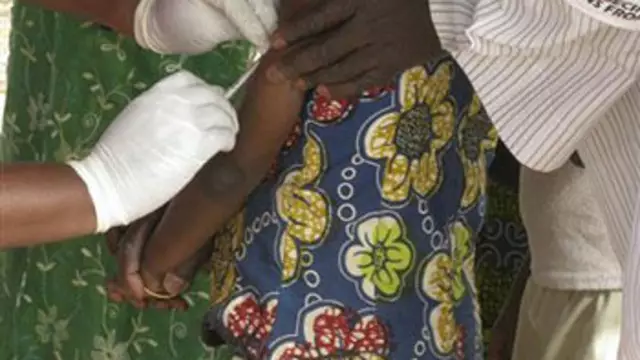- Author Curtis Blomfield blomfield@medicinehelpful.com.
- Public 2023-12-16 20:44.
- Last modified 2025-01-23 17:01.
Meningitis is an inflammation of the lining of the spinal cord and brain. The disease is very dangerous and is characterized by serious consequences, both for physical and psychological development. Unfortunately, to date, a universal meningitis vaccine has not been invented. The problem is that this serious disease is caused by various pathogenic bacteria and viruses. Nevertheless, prevention has been developed and is actively used among the population. Vaccination helps prevent infection with many diseases that later lead to the development of meningitis. Most often, the meningitis vaccine (that is, from a number of microorganisms that cause infections) is given to children at an early age.

Of course, more than one drug has been developed to prevent the occurrence of viral and bacterial meningitis. We list only a few of them.
- Vaccine against Haemophilus influenzae bacteria. These are the causative agents of rather severe pneumonia and meningitis. Particularly dangerous forhuman type B, against which, in fact, the vaccinating preparation was created. Vaccinations are subject to babies under 5 years old, as well as children of any age suffering from certain diseases. Until recently, Haemophilus influenzae was considered the most common causative agent of bacterial meningitis, but due to active prevention, cases of the disease have become rare.

- A meningitis vaccine that protects against microbial agents belonging to the genus Neisseria. First of all, we are talking about meningococci. Usually it is administered to children under 12 years of age. It is used to protect people with diseases that reduce the activity of the immune system. In some regions, this vaccination is also recommended for recruits and students living in dormitories. Of course, we should not forget about tourists, especially if you are going to travel to some countries in Africa, where outbreaks of meningococcal infections still occur to this day.

- The next meningitis vaccine is directed against the action of pneumococci. These microbes often cause inflammation of the meninges. Two types of pneumococcal vaccine have been developed. The polysaccharide pneumococcal vaccine is recommended for adults over 60 years of age. The second pneumococcal conjugate vaccine is used to prevent infants under two years of age and children aged 2 to 5 who are at risk.
Of course, a meningitis vaccine is currently being developed that could reduce the risk of this disease. Butfor now, all that remains is to take measures to protect your body from pathogens.
So, how not to get meningitis? You need to start with the most basic things. Since some types of meningitis are transmitted exclusively by air, it is necessary to refrain from close contact with sick people. Also use individual personal hygiene items - these are, first of all, towels and toothbrushes. But if you still couldn't avoid close contact with an infected person, see a doctor immediately.






